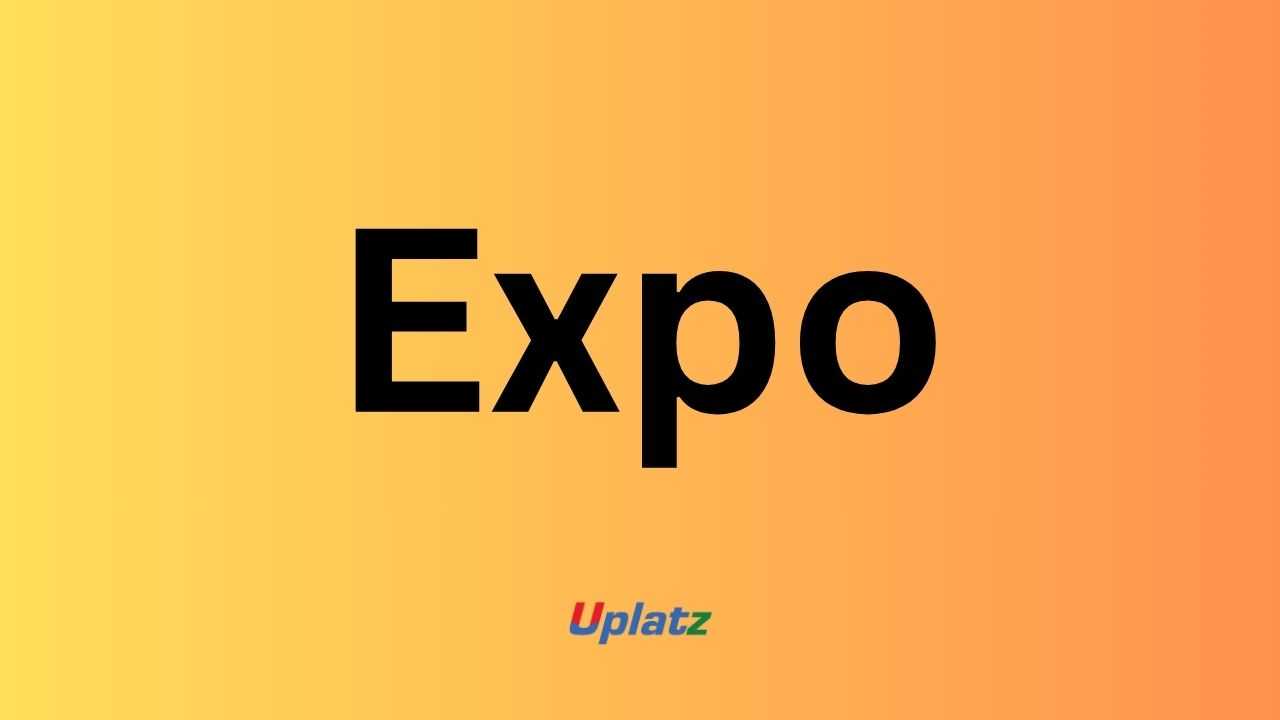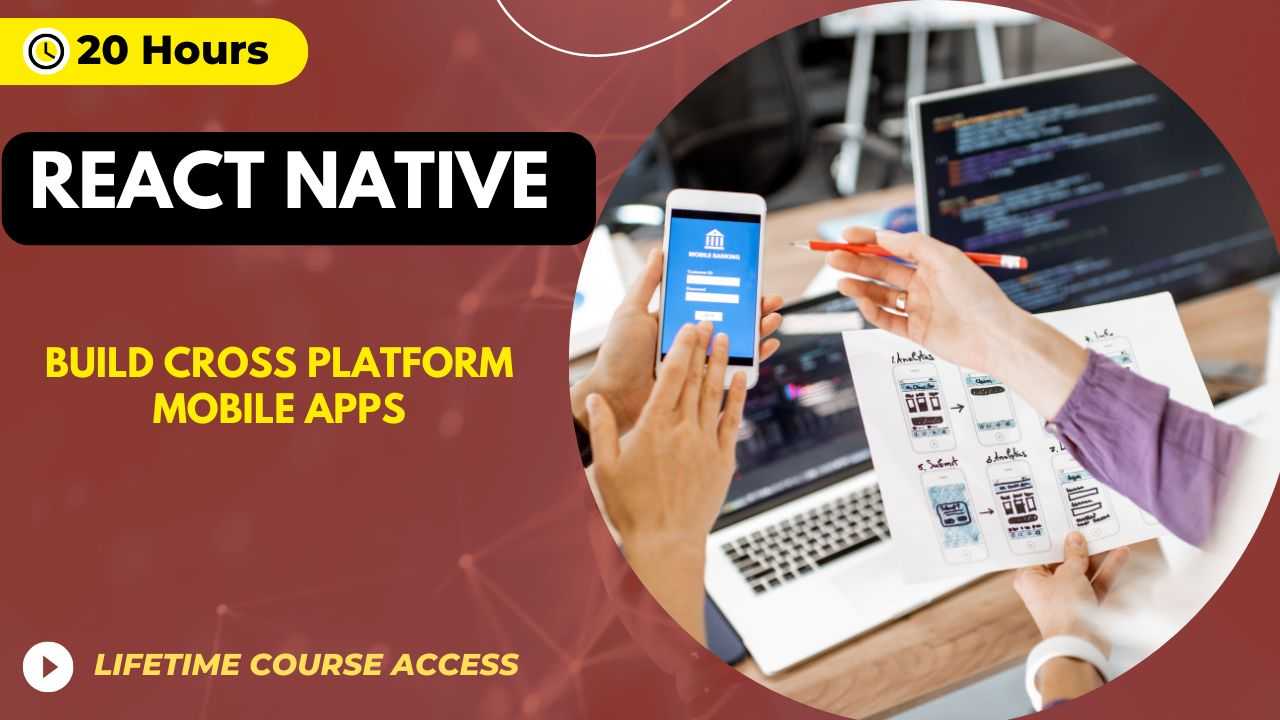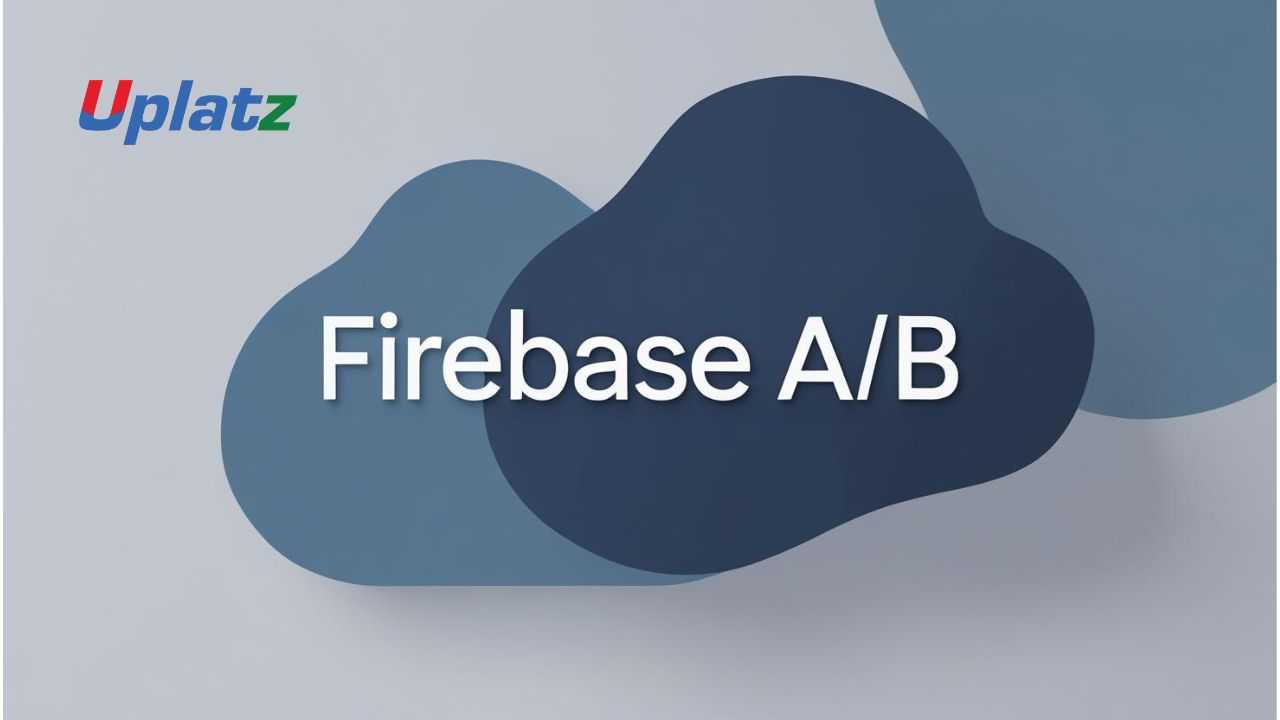Expo
Master Expo to build, test, and deploy cross-platform React Native apps faster with a streamlined developer experience. Price Match Guarantee
Full Lifetime Access
Access on any Device
Technical Support
Secure Checkout
Course Completion Certificate
Price Match Guarantee
Full Lifetime Access
Access on any Device
Technical Support
Secure Checkout
Course Completion Certificate
 97% Started a new career
BUY THIS COURSE (
97% Started a new career
BUY THIS COURSE (GBP 12 GBP 29 )-
 86% Got a pay increase and promotion
86% Got a pay increase and promotion
Students also bought -
-

- React Native
- 20 Hours
- GBP 12
- 2788 Learners
-

- Flutter
- 10 Hours
- GBP 12
- 10 Learners
-

- Firebase A/B
- 10 Hours
- GBP 12
- 10 Learners

Expo is an open-source platform for building React Native apps that simplifies development with a managed workflow, powerful CLI, and cloud-based build services. With Expo, developers can build, preview, and deploy iOS, Android, and web apps from a single JavaScript/TypeScript codebase—without needing complex native setup.
This course introduces learners to Expo fundamentals, managed vs bare workflows, libraries, testing, and deployment. By the end, you’ll be able to build and publish cross-platform apps quickly and efficiently using Expo.
What You Will Gain
-
Understand Expo’s architecture and workflows.
-
Build React Native apps without native build dependencies.
-
Use Expo SDK libraries for camera, sensors, and push notifications.
-
Test apps instantly with Expo Go.
-
Deploy apps to App Store, Google Play, and web.
-
Manage configuration, updates, and over-the-air (OTA) deployments.
-
Apply best practices for React Native + Expo projects.
Who This Course Is For
-
React developers expanding into mobile development.
-
Mobile developers wanting faster builds and testing.
-
Full-stack engineers delivering mobile + web apps.
-
Students & professionals learning React Native with ease.
-
Startups & teams seeking rapid prototyping and deployment.
How to Use This Course Effectively
-
Start with Expo basics – installation and Expo Go.
-
Build small apps with UI components and APIs.
-
Explore Expo SDK features like camera, push, and maps.
-
Learn the differences between Managed and Bare workflows.
-
Integrate with backend APIs and databases.
-
Revisit modules for publishing, OTA updates, and scaling.
By completing this course, learners will:
-
Install and configure Expo for React Native projects.
-
Build cross-platform apps with managed workflow.
-
Use Expo libraries for device features and APIs.
-
Test and preview apps instantly with Expo Go.
-
Publish apps to app stores and deploy OTA updates.
-
Transition between managed and bare workflows when needed.
Course Syllabus
Module 1: Introduction to Expo
-
What is Expo?
-
Expo vs React Native CLI
-
Installing Expo CLI and Expo Go
Module 2: Core Concepts
-
Managed workflow vs bare workflow
-
Project structure and configuration
-
Expo SDK overview
-
Running apps with Expo Go
Module 3: Building Apps
-
UI components and styling
-
Navigation with React Navigation
-
Forms and user input
-
State management with Redux/Context
Module 4: Device Features & APIs
-
Camera and media APIs
-
Sensors (accelerometer, gyroscope, etc.)
-
Push notifications
-
Location and maps
Module 5: Data & Backend Integration
-
Fetching data from APIs
-
Offline storage with SQLite/AsyncStorage
-
Authentication flows
-
Integration with Firebase and GraphQL
Module 6: Advanced Features
-
Background tasks and services
-
Custom native modules (bare workflow)
-
Performance optimization
-
Theming and responsive UI
Module 7: Testing & Debugging
-
Debugging with Expo DevTools
-
Unit testing with Jest
-
Integration testing for mobile apps
-
Monitoring performance
Module 8: Deployment & Publishing
-
Building binaries with EAS Build
-
Over-the-air (OTA) updates with EAS Update
-
Publishing to App Store and Google Play
-
Expo for web deployment
Module 9: Real-World Projects
-
To-do app with Expo and Firebase
-
Social media clone with push notifications
-
Fitness tracking app with sensors + maps
-
E-commerce app with backend integration
Module 10: Best Practices & Future Trends
-
Clean architecture for Expo apps
-
Scaling projects with bare workflow
-
Expo vs pure React Native trade-offs
-
The future of Expo in mobile dev
Learners will receive a Certificate of Completion from Uplatz, validating their expertise in Expo and cross-platform mobile development. This certification demonstrates readiness for roles in mobile, frontend, and full-stack app development.
Expo skills prepare learners for roles such as:
-
Mobile App Developer (React Native + Expo)
-
Cross-Platform Developer (iOS/Android/Web)
-
Full-Stack Engineer (mobile + backend)
-
Frontend Developer (React + mobile apps)
-
Software Engineer (rapid prototyping and deployment)
Expo is widely adopted by startups, SaaS companies, and enterprises to accelerate mobile development, making it a strong career skill.
1. What is Expo?
An open-source platform that simplifies React Native development with managed workflows and cloud services.
2. How does Expo differ from React Native CLI?
Expo removes the need for native setup (Xcode/Android Studio) and provides prebuilt libraries, while React Native CLI offers full native control.
3. What are Expo workflows?
Managed workflow (no native code needed) and bare workflow (full native flexibility).
4. How do you preview apps with Expo?
Using the Expo Go app to run projects instantly on iOS/Android devices.
5. What is EAS in Expo?
Expo Application Services (EAS) for builds, OTA updates, and submissions.
6. What device features does Expo SDK provide?
Camera, sensors, push notifications, location, and media APIs.
7. Can Expo apps be published to app stores?
Yes, Expo provides tools for App Store and Google Play publishing.
8. What are the benefits of Expo?
-
Fast development and testing
-
Cross-platform with one codebase
-
OTA updates
-
Strong SDK support
9. What are challenges with Expo?
-
Managed workflow limits custom native modules
-
Larger app bundle size
-
Dependency on Expo ecosystem
10. Where is Expo being adopted?
By startups, SaaS companies, and developers needing fast, cross-platform React Native app development.









